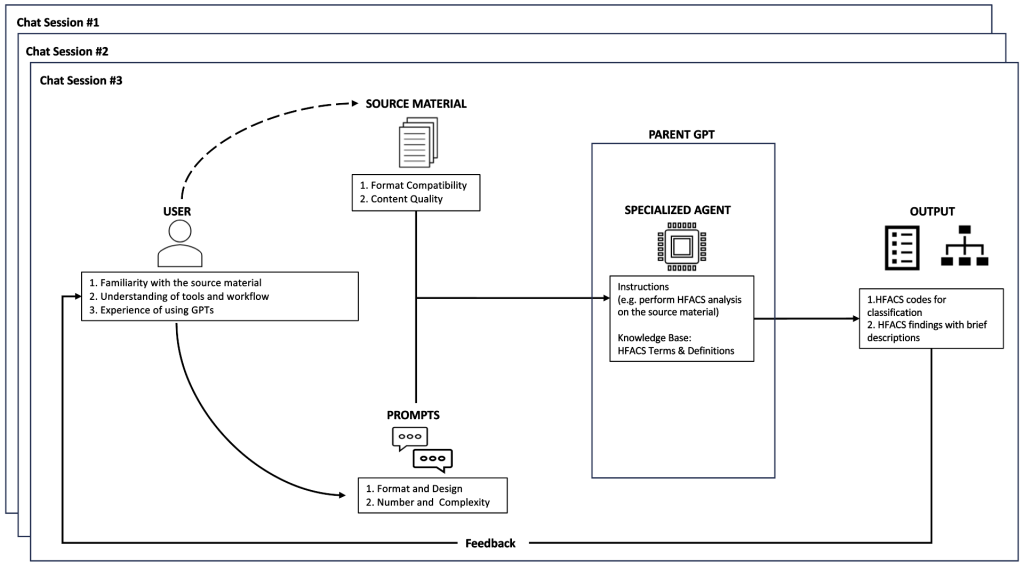Our team has developed a comprehensive model to guide the design process for specialized GPTs, making it accessible to users of all experience levels. Our goal is to ensure that anyone can effectively use and benefit from this tool. The output of GPTs can be influenced by various factors, including the user’s input, source materials, the prompts used, the design of the agent, and the choice between single or multiple chat sessions. By carefully focusing on these components, GPT agents can be optimized for improved effectiveness and user-friendliness. We briefly describe each of these components below.
- User: The individual who interacts with the AI model and is the ultimate end-user of the specialized agent. Understanding the user’s needs, knowledge, and experience is crucial for designing an effective agent.
- Source Material: The content within the agent’s knowledge base (refers to a collection of information and data that the model can access to generate more accurate and relevant responses) and files the user uploads themselves into the chat. The quality and relevance of these materials directly influence the agent’s outputs and performance.
- Prompts: The inputs provided by the user to interact with the agent. Effective prompt design is essential for guiding the agent to produce accurate and useful outputs.
- Specialized Agent: The GPT agent is designed with a clear analytical purpose, providing detailed instructions on how to carry out the analysis and format the results effectively. The specialized GPT agent is tailored to perform specific tasks based on user requirements, leveraging source material and responding accurately to prompts.
- Chat Session: A chat session refers to a single conversation thread between the agent and the user. Continuing to engage the agent within the same conversation thread can allow the agent to use information shared earlier in the thread when generating a response. However, it may also adversely affect the response quality for certain queries (e.g., identifying recommendations, and listing items). Creating new chat sessions and re-using earlier prompts and queries can result in the agent producing different responses.
- Output: The results generated by the specialized agent in response to user prompts, reflect the combined influence of the user’s input, source material, and the agent’s capabilities.
- Feedback: The feedback process helps users assess output quality. If the output meets the criteria, the user continues with analysis; if not, they can refine prompts, change the source material, or adjust the agent’s instructions.
